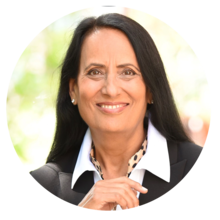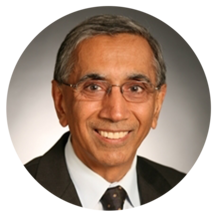About this Presentation
This presentation was given by Lisa Scheinkopf. This presentation is the first day of the two days of the TOCICO conference. Dr. Goldratt typically teaches the first two days of the conference. With his fight with cancer, he prepared and taught a team of TOC experts to conduct these first two days. This introductory session explains Goldratt’s planning process for this conference and the theme: Never Say I KNOW. Efrat Goldratt’s (Eli’s daughter) tree which is based on Goldratt’s book, The Choice, was discussed. To lead a full life one must have enough meaningful successes. For that the person must have stamina to overcome failures, many opportunities and the ability to collaborate with people. In order to recognize these characteristics the person must have the ability to think clearly. But in order to think clearly the person must overcome four obstacles: the perception of reality as complex; don’t accept conflicts as given; avoid blaming; and never say I KNOW. The related pillars of TOC are: inherent simplicity; every conflict can be removed; people are good; and every situation can be substantially improved. Overcoming this fourth obstacle by understanding that every situation can be substantially improved is the focus of this two-day program. Recognizing that TOC is all about substantially improving any system (doubling the goal units), what is the process for accomplishing these results? The huge jump in improvement is possible because a solid base is present. The Standing on the Shoulders of Giants process (SOSG) is outlined as: 1. Identify a giant, not a choopchick. 2. Identify the enormity of the area not addressed by the giant. 3. Get on the giant’s shoulders. 4. Identify the conceptual difference between the reality that was improved so dramatically by the giant, and the area untouched. 5. Identify the wrong assumption. 6. Conduct the full analysis to determine the core problem, solution, etc. This process is described in detail with respect to Goldratt’s article by this name and applied to two topics over the next two days. The process is about creating dramatic new knowledge in each topic. For the first day project management was selected as the topic and for the second day was shifting from the red curve to the green curve.
What Will You Learn
To help you get the most value from this session, we’ve highlighted a few key points. These takeaways capture the main ideas and practical insights from the presentation, making it easier for you to review, reflect, and apply what you’ve learned.

Instructor(s)
Eliyahu M. Goldratt

Ms Alka Wadhwa
Alka Wadhwa is an experienced consultant and process improvement expert with over 24 years of expertise in the Theory of Constraints (TOC), Lean Six Sigma, and organizational performance optimization. She has successfully led projects in healthcare, financial services, and manufacturing, driving significant improvements such as a 67% boost in hospital operations and a 140% increase in outpatient visits.
Previously, Alka Wadhwa spent 17+ years at GE Global Research Center, where she led initiatives to enhance various GE businesses through advanced technologies, process redesign, and system optimization. Founder of Better Solutions Consulting, LLC, she specializes in using TOC, Six Sigma, and data analytics to streamline operations and build high-performance teams.
Her work has earned her multiple accolades, including the Empire State Award of Excellence in healthcare.

Dr Gary Wadhwa
Dr. Gary Wadhwa is a Board Certified Oral & Maxillofacial Surgeon with extensive experience in the field. He completed his Oral & Maxillofacial Surgery training at Montefiore Hospital, Albert Einstein College of Medicine in Bronx, NY, and has served as an Attending at prestigious institutions like St. Peters Hospitals, Ellis Hospital, and Beth Israel Hospital in NY. With a career spanning over two decades, he was the former CEO and President of a group specialty practice in NY from 1994 to 2015. Dr. Wadhwa holds an MBA from UT at Knoxville, TN, and has undergone additional training in System Dynamics at MIT, Health System Management at Harvard Business School, and Entrepreneurship and healthcare innovations at Columbia Business School. Committed to expanding access to Oral & Maxillofacial Surgery care, he is currently engaged in a meaningful project to provide healthcare services to underserved populations in inner city and rural areas through non-profit Community Health Centers.
